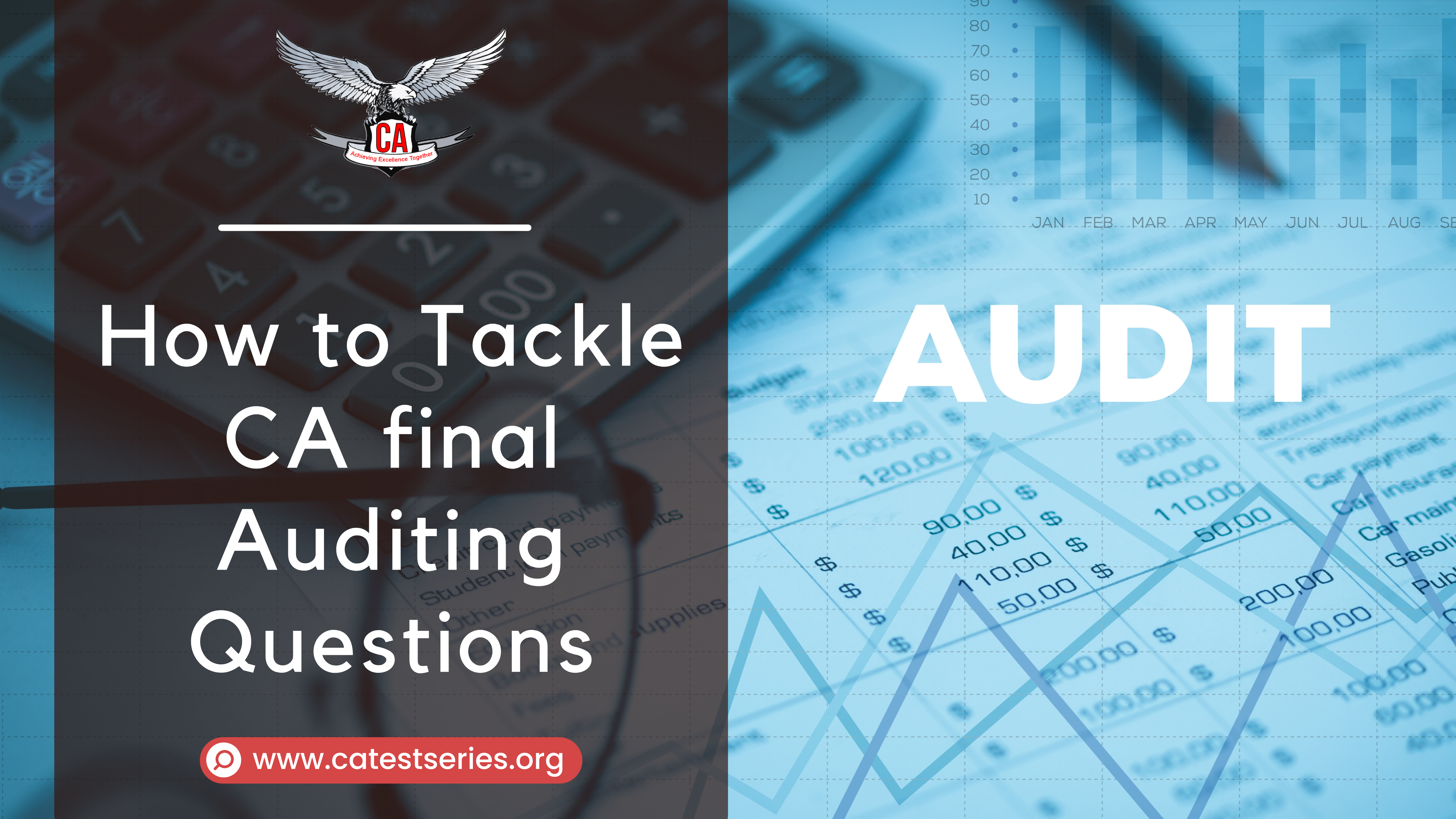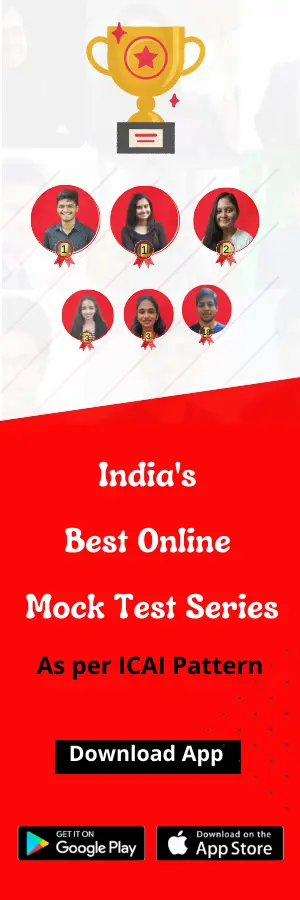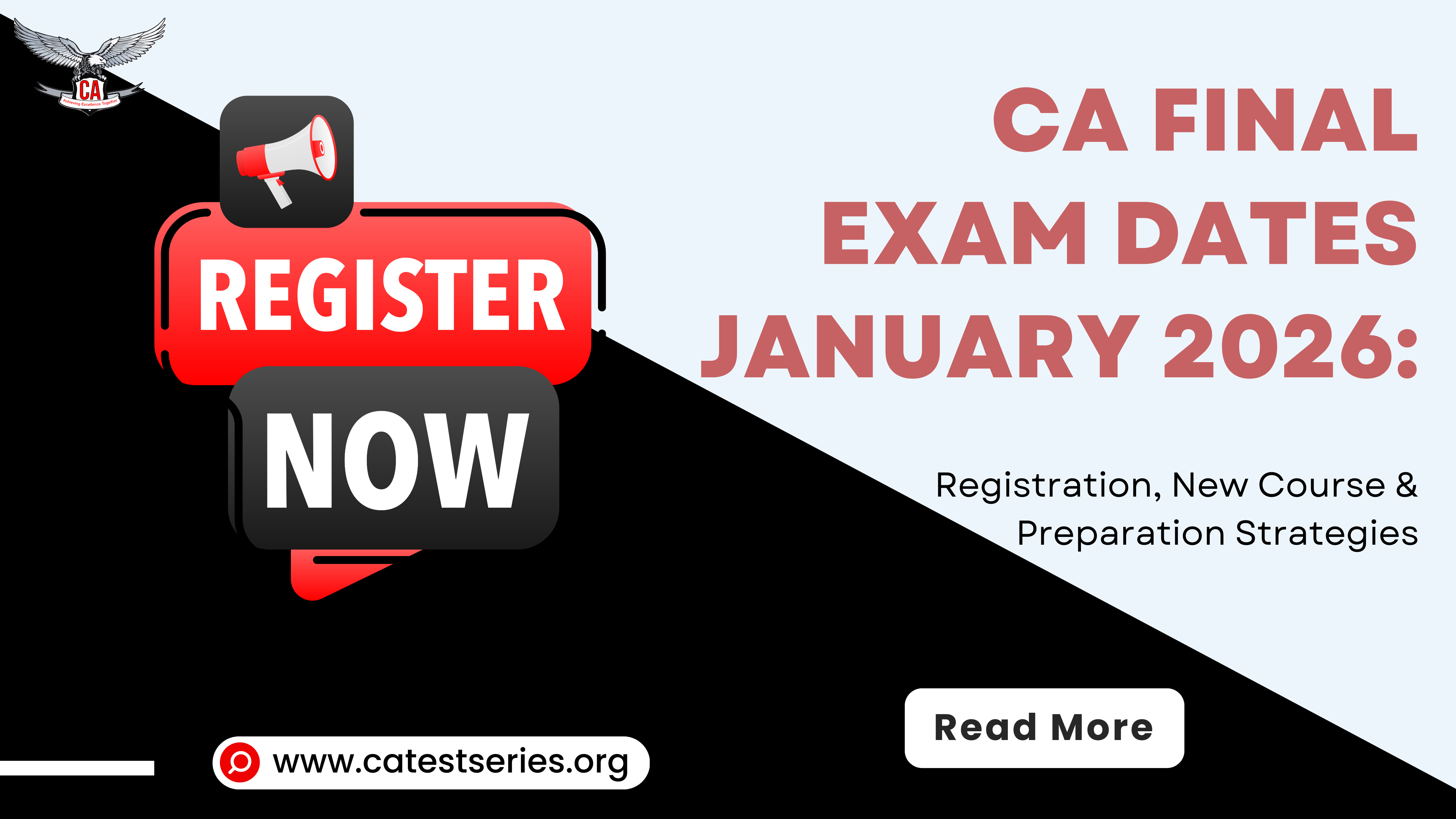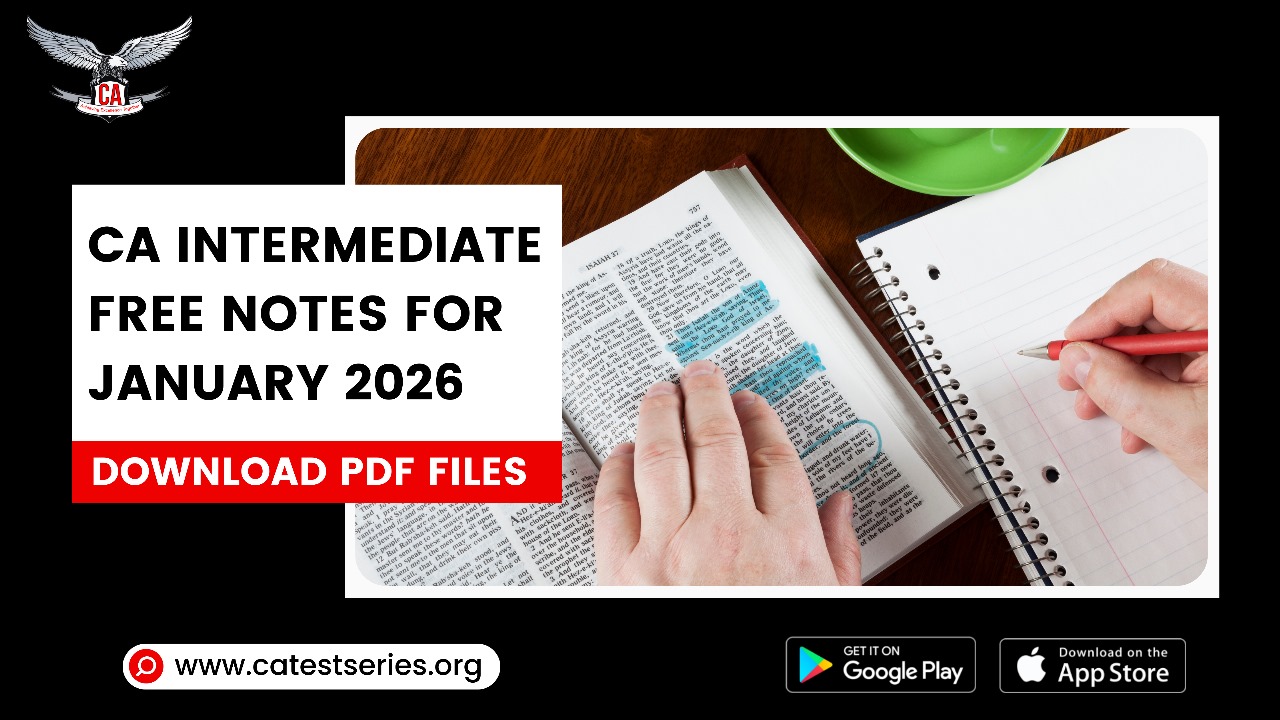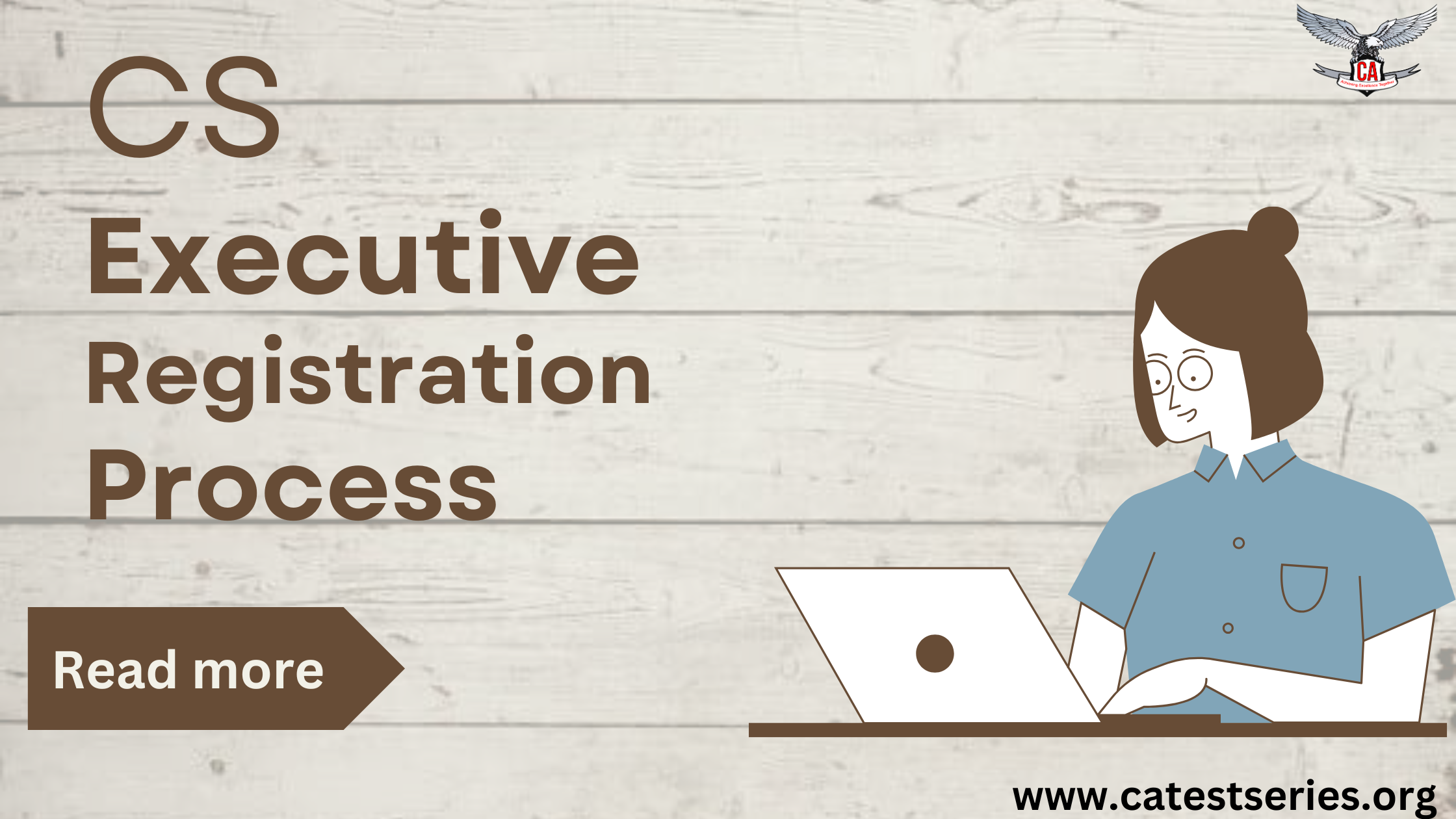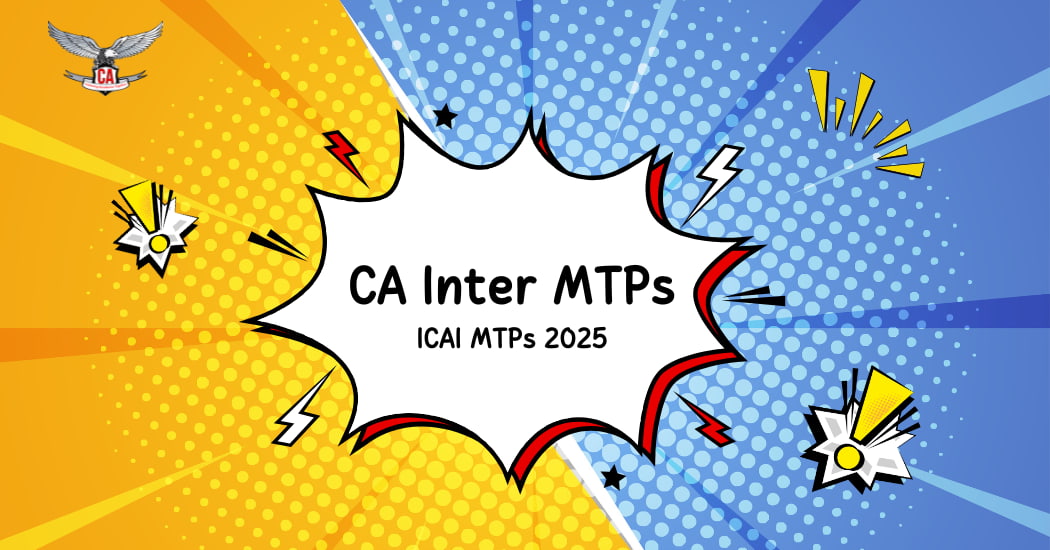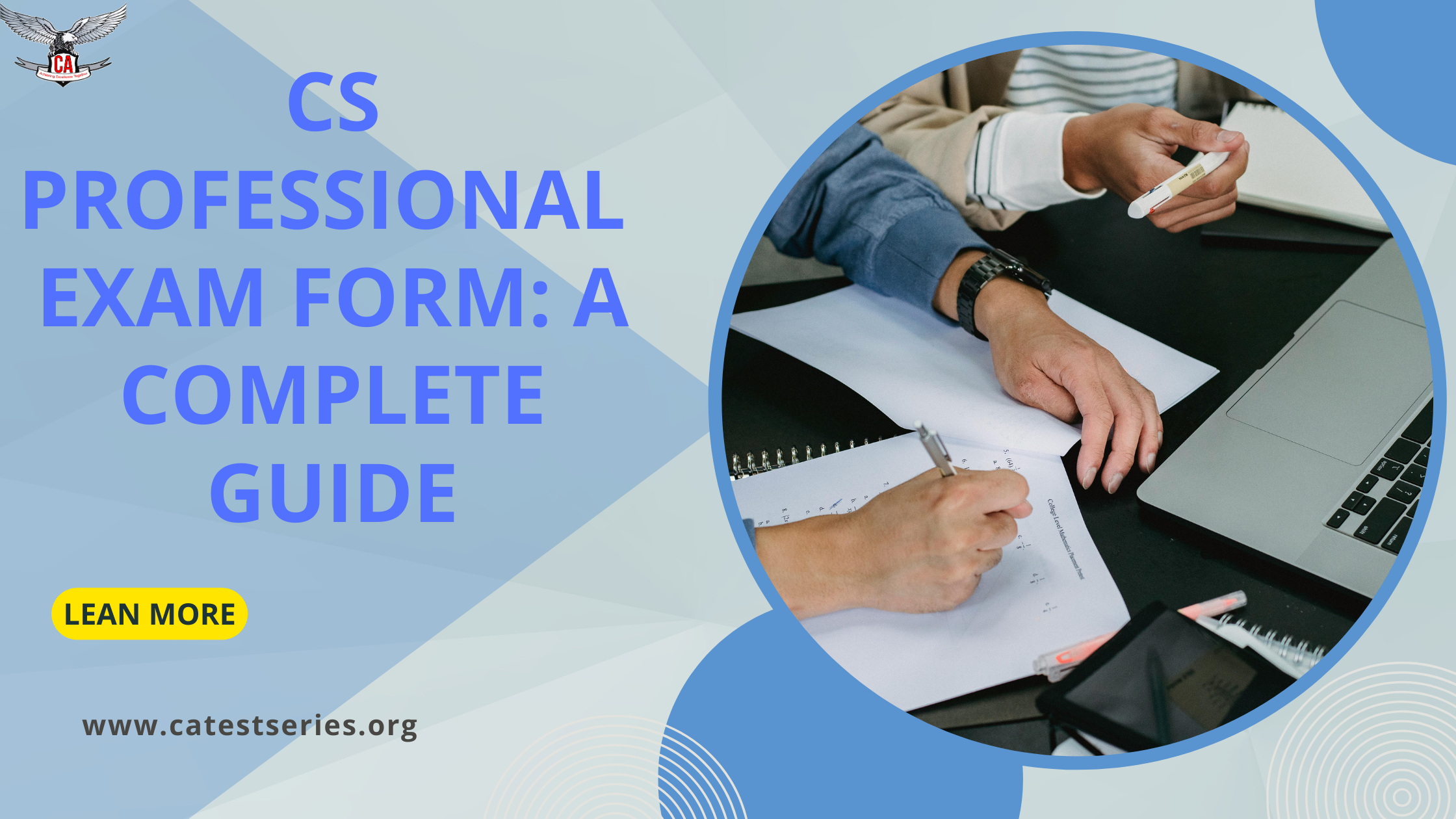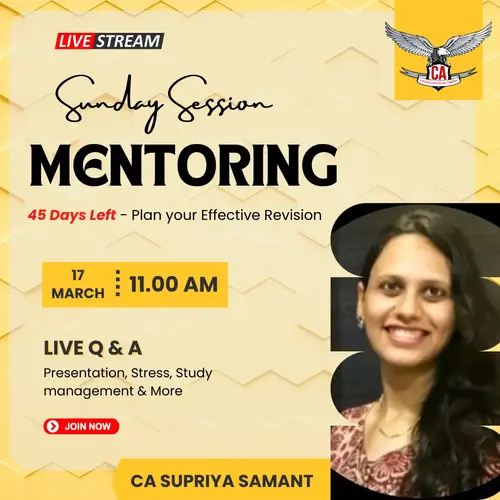CA Final Audit Important Questions & Answers | Tips to Score Good Marks in CA Final Audit
The CA Final Auditing paper is indeed one of the most challenging and demanding subjects in the entire CA course, requiring an intense and broad range of understanding for all aspects associated with auditing principles and standards, besides their practical applicability in actual practice. Since the examination involves a combination of questions related to theoretical answer questions as well as practical case study questions, flawless success in this particular paper will be dependent on strong and effective strategies that have to be specially tailored for every type of question being dealt with. Therefore, in order to successfully attempt the CA Final Auditing questions, the following methods and approaches need to be used-
1. Understand the Exam Pattern and Syllabus
- Learn about the CA Final Auditing paper regarding structure, weightage, and syllabus. Typically, MCQs, along with descriptive questions, constitute this paper. Various topics that are covered include Company Audits, Standards for Auditing, Audit Reports and Professional Ethics.
- Analyze past years question papers to identify frequently asked topics and concepts, helping you focus on high-priority areas.
2. Master Standards on Auditing (SAs)
- Standards on Auditing are one of the most critical segments of the CA Final syllabus on auditing. Each standard is different from its counterparts in intent and application. This, therefore, calls for a proper understanding of what each standard says and how each one is built.
- Develop a summary or list of key points for each SA relating to objectives, scope, and responsibilities for auditors. It is a quick reference on revision and will help you answer questions correctly about these standards.
- Standard rules applicable to hypothetical scenarios. Most questions in the CA Final paper are through case studies, so it is very important to know SAs to get them applied correctly.
3. Focus on Case-Based Questions
- Case-based questions test your ability to apply theoretical knowledge in practical situations, simulating real-life auditing issues. These questions often combine multiple SAs and concepts.
- For case studies, read the question carefully for relevant facts, numbers, and silent audit risks or problems. Emphasize these places where auditor judgment and decisions are critical to you.
- Another topic that frequently comes up in CA Final Auditing tests is professional ethics. The CA Code of Ethics, auditor independence, and conflict of interest issues are examples of ethical issues.
- Respond to ethical inquiries by pointing out possible ethical problems, summarizing important ethical precepts, and talking about the implications for the auditor.
4. Practice Professional Ethics Questions
Another topic that frequently comes up in CA Final Auditing tests is professional ethics. The CA Code of Ethics, auditor independence, and conflict of interest issues are examples of ethical issues.
- Respond to ethical inquiries by pointing out possible ethical problems, summarizing important ethical precepts, and talking about the implications for the auditor.
- Consider the Code of Ethics by ICAI. ICAI applies it in various situations. In a way, previous exam papers can be a useful guide to find how questions like this can be answered.
5. Develop a Strong Grasp on Audit Reports and Opinions
- The CA Final Auditing paper typically covers audit reports and opinions, requiring a detailed understanding and differentiation of the many types of audit reports.
- Examine the format and terminology used for each type of audit report. Keep in mind the guidelines for expressing a qualified or modified perspective, as well as how to make these modifications obvious.
6. Create Summarized Notes for Important Topics
- Since the syllabus is quite long, it will be helpful to study with short notes or flashcards on important topics like SAs, ethics, and audit reports. Summarise each topic with the key points and common question types.
- To summarise, include only high-impact phrases, definitions, or examples relevant to the examination. Under exam pressure, quick references help students keep important knowledge in mind and also help with last-minute modifications.
7. Make Time Management a Priority Both Before and During the Exam
- Time management is essential during the exam. Begin by assigning time to each section based on your level of expertise and its weight. After that, set aside 15 to 20 minutes to edit your responses.
- Do the practices test with time constraints as well, simulating the actual exam scenario? You will feel pressure to complete answers in a limited amount of time this way.
- While preparing, keep a plan that lets you go back to topics you have already learned. This will help them stay fresh in your mind and make it easier for you to answer questions on each topic quickly.
8. Master Presentation Skills for Answer Writing
- Presenting answers well is the key to any CA exam. The graders of exams would appreciate clear, readable answers that could contain certain headings and ample bullet points.
- Start with a general introductory sentence of the context of your question, followed by theory, application, and a conclusion.
- For case-based questions, use sub-headings like "Issue," "Applicable Standards," "Application," and "Conclusion" to organize answers logically and clearly. This helps make the thought process very clear for the examiner.
9. Review Past Year Papers and ICAI Suggested Answers
- Practising past papers is the best way to prepare for CA Final Auditing.
- Look at the ICAI suggested answers because they show what the institute wants regarding answer length, format, and detail.
10. Use Diagrams and Flowcharts Wherever Possible
- Visual aids such as flowcharts, tables, and diagrams can make complex matters easier to grasp, making your answer more readable and visually appealing to the examiner.
- Diagrams are very helpful in explaining audit steps, control processes, and the flow of audits of very complicated situations.
Conclusion
Success in the CA Final Auditing exam has to be an amalgam of theoretical knowledge, practical exposure, and strategic preparation. All these strategies are going to help enhance confidence and performance in the exam, from understanding the pattern of the exam, focusing on SAs, practising case-based questions, and enhancing answer presentation skills to effective time management. This needs regular practice and repeated review. There must be a balanced approach to deal with all types of questions. If you put in adequate effort, CA Final Auditing can become a wonderful experience that will help you do well and move closer to gaining a CA title.

